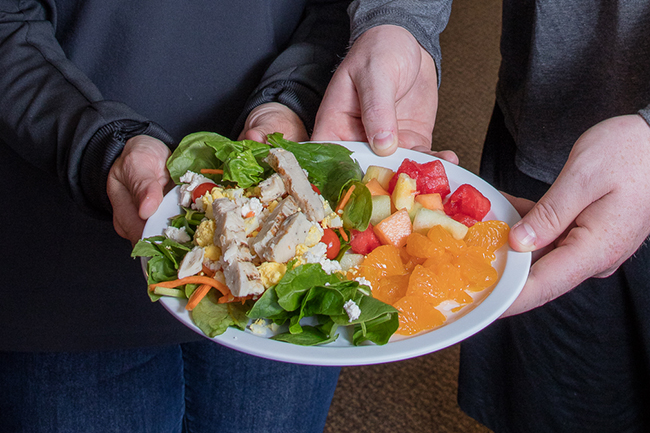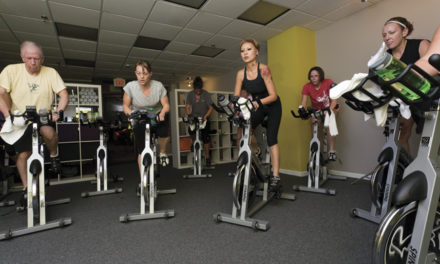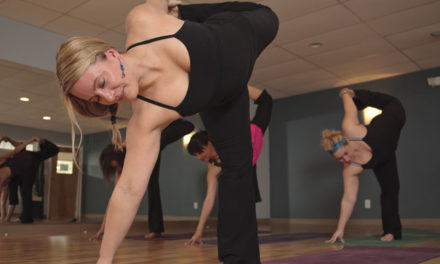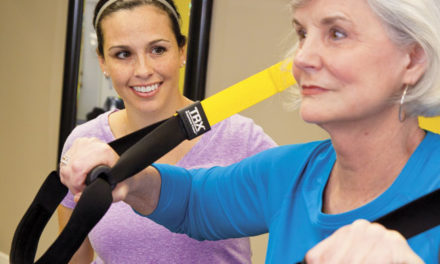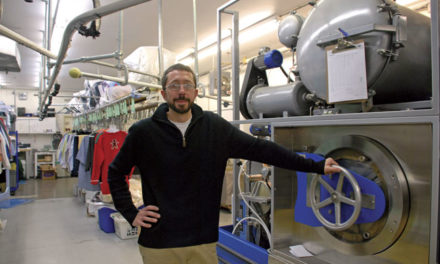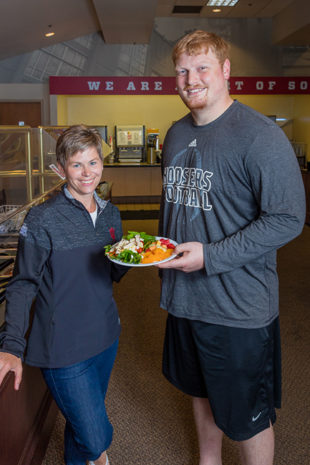
BY MIKE LEONARD
Amy Freel smiles and acknowledges the challenges that come with her job as director of sports performance nutrition for Indiana University Athletics.
It’s not uncommon for her to glance at an athlete’s plate at Training Table (IU’s all-you-can-eat buffet available to athletes during the academic year) and comment on what’s on it — and what’s not. “Oh, I get ‘Thanks, Mom’ and some ribbing,” she says. “I take it as a compliment.”
“Some people give her a hard time,” acknowledges Jacob Bailey, a 6-foot-5-inch, 300-pound offensive lineman for the IU football team. “And, hey, when I got here, I was a meat-and-potatoes guy for sure. But we all know she’s here to help us perform the best we can. As you get older, there’s more buy in, and once you really start paying attention to what you eat and when, you become a believer.”
IU Athletics brought Freel, a sports dietitian and former Ball State University gymnast, to campus in 2011 to develop a comprehensive nutrition program that would improve the training, recovery time, and performance of the 700 athletes under its “24 Sports, One Team” credo.
Freel and her nutrition staff do everything from individual and group nutrition counseling to determining what will appear on the Training Table buffets. Her staff packs to-go lunches and snacks for teams when they travel and even scans the menus of restaurants where athletes will eat on the road, making recommendations for the best food choices.
“We spend a lot of time talking about how to build your plate,” she says. “We also do a lot of other things outside of Training Table, like teaching them how to shop and giving them basic cooking demonstrations.”
It’s time-consuming, servicing the needs of hundreds of athletes who compete in sports as different as football and swimming. “The most rewarding thing for me is that aha moment when a student-athlete comes to you and tells you how much better he or she feels or how they know they performed better because they ate the right food and at the right time,” Freel says.


